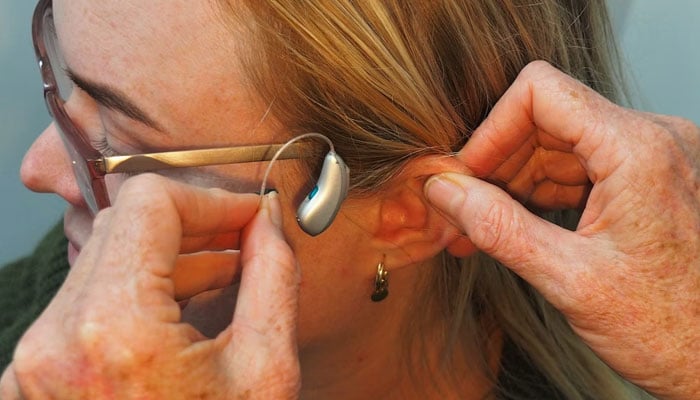Use of hearing aid could reduce risk of dementia, study
Research finds hearing loss connected with dementia
April 18, 2023

If you have a hearing loss problem, it may increase the risk of dementia but the risk can be mitigated with the help of hearing aid, finds a study published in the The Lancet Public Health.
The study followed more than 437,000 people in a cohort from the UK Biobank — a large biomedical database and research resource. They looked at each person’s risk for dementia, self-reported use of hearing aids and medical records to see if the person developed the disease.
Corresponding author of the study, Dongshan Zhu, in a statement, said : "The evidence is building that hearing loss may be the most impactful modifiable risk factor for dementia in mid-life."
He added: "Our study provides the best evidence to date to suggest that hearing aids could be a minimally invasive, cost-effective treatment to mitigate the potential impact of hearing loss on dementia."
The research also included other influencing factors such as loneliness, social isolation and depression. It, however, confirmed that untreated hearing loss has a connection with dementia.
Tom Dening, who had read the paper but was not involved in the study, said: "The paper explores some of the possible reasons as to how hearing aids may work, tending to [favour] the idea that they are effective because they reduce the cognitive effort involved in hearing and/or they reduce the effects of sensory deprivation if you can’t hear."
The study said a 2020 Lancet Commission on dementia prevention, intervention and care suggested hearing loss may be associated with around 8% of dementia cases. However, the study revealed the use of hearing aids mitigate the risk to levels similar to people without hearing loss.
The findings in the study support the conclusion of the December meta-analysis published in JAMA Neurology that "people with hearing loss who wore devices to help performed 3% better on cognitive scores in the short term".









